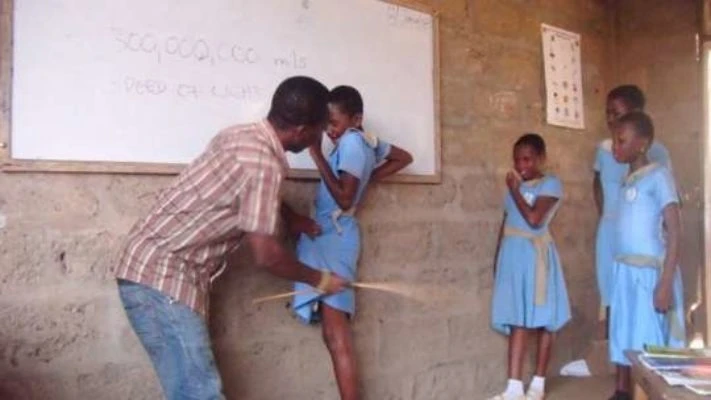Corporal punishment in schools as indicative of violent behaviour

THE other day, I watched one of the online TV and heard of a puzzling story of a schoolgirl who had been admitted to hospital. The schoolgirl said she was badly beaten up (got 70 canes) by teachers at school to the extent of failing to sit for an exam. Although it was not said why she was beaten up like that, as a parent I was astounded to hear from her and from a medical doctor who confirmed what had happened to her.
I believe there are other forms of punishment which can help a schoolchild correct his or her behaviour, but not necessarily corporal punishment which inflicts pain on schoolchildren.
I remember when I was still in primary school some teachers would punish us when we did wrong, but in a manner that did not inflict physical or mental harm on us. Yet, it made us show remorse for what we did. Corporal punishment can be replaced with manual work or any productive activity.
This is a form of punishment which can help in behavioural change, but it is not necessary that schoolchildren should be subjected to corporal punishment. In my opinion, the administration of corporal punishment is a form of violence teachers and even parents and caretakers induce on children.
We have to bear in mind that violence breeds violence. Teachers who lack teaching skills tend to use force in teaching even if schoolchildren don’t understand what they teach. Teachers of this kind may prefer corporal punishment to other forms of punishment because they think a child learns better when he or she is beaten up, but it is not true. There is an often cited proverb “Spare the rod and spoil the child” by teachers and parents who prefer corporal punishment to other forms of punishment as a way of correcting them.
But who learns better while he or she is feeling pain in his or her body? Can a schoolchild concentrate on the subject he or she is taught while at the same time is feeling pain? I don’t think so. Some teachers have to change their mindset and learn more about teaching skills, not just forcing schoolchildren to understand them even when they are clear to their pupils or students.
Teaching doesn’t need any cane, but it only needs teaching skills which help schoolchildren like the subject they are taught. A skilled teacher can lead schoolchildren to concentrate on the subject through a play or singing a song. Playful learning is recommended as an effective teaching strategy.
Under the Education (Corporal Punishment) Regulations, 2002, the school head or a teacher appointed in writing by the school head may administer corporal punishment to a pupil or student and the maximum canes the pupil or student may undergo at a time are 4 (but not as many as 70 as it happened to the girl I have referred to above) and the pupil or student must have committed a grave offence, which is deemed by the school to have brought or is capable of bringing the school into disrepute, but not in any other circumstance.
However, when a pupil or student is punished the teacher administering corporal punishment must take into consideration the offence, age, health and sex of an offender. In one school in Kagera Region, the administration of corporal punishment led to the death of a pupil. This means administration of corporal punishment in schools may occasion death or bodily injury as it has happened to the schoolgirl I have referred to. Children or schoolchildren must be protected against torture and degrading treatment.
Section 13(1) of the Law of the Child (R.E 2019) states that: “A person shall not subject a child to torture, or other cruel, inhuman punishment or degrading treatment, including any cultural practice which dehumanises or is injurious to the physical and mental well-being of a child.”
Moreover, subsection (2) states: “No correction of a child is justifiable which is unreasonable in kind or in degree according to the age, physical and mental condition of the child and no correction is justifiable if the child is by reason of tender age or otherwise incapable of understanding the purpose of the correction.”
I believe that the more corporal punishment is administered to schoolchildren the more they are induced to violence and as they grow up they too will start being violent to their own children or schoolchildren in the case of those entrusted to teach schoolchildren. We may correct children even when we don’t cane them. We should make corporal punishment rare and when it is used it should only be in grave offences, but it shouldn’t be felt as a necessity because there are other forms of punishment which are more effective in inducing behavioural change in children than corporal punishment.
Today’s proverb: ‘It is always time to do good’.
The author is a Dar es Salaam-based lawyer and can be reached at [email protected]
Top Headlines
© 2025 IPPMEDIA.COM. ALL RIGHTS RESERVED

























